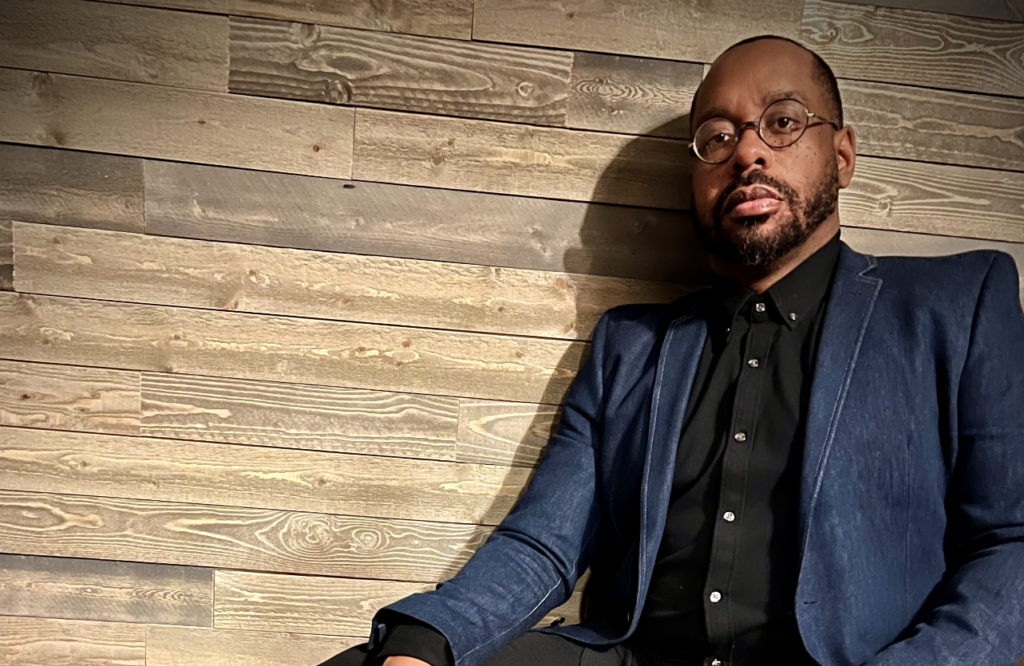Springfield native Carl Muldrow has worked in the field of human services for 26 years including early on with young adults and victims of domestic violence with nonprofits such as the YWCA of Western Massachusetts and MHA. His many years of service with Baystate Medical Center found him on the Adult Psychiatric Unit. In August of 2022, he became part of Team MiraVista on the adolescent inpatient psychiatric unit where he works closely with E. Dragon, the unit’s nurse manager.
His title is mental health counselor and he sees his work not only about supporting young patients in managing their mental health but also being a team member committed to collectively and effectively tackling day-to-day challenges with a positive attitude.
“When we do our team report, we address a lot from reporting on patients to what the day was like to, ‘OK, I’ll tackle this, you’ll do this, how do you want this to go,” Carl said. “We have a blueprint and plan before we walk out to the floor.”
He added, “I love helping patients – helping to educate them and helping them to make changes in their lives.”
Carl said he could have had a first career in music management, but decided in the 1990s he wanted to stay in the area long-term to help his mother, Almond Muldrow, who died in March. He credits her with his desire to empower people, especially women.
“My experience has grown from who I am as a person, absorbing knowledge and being in tune with people so I can interact with them, help them and validate them,” Carl said. “I am very organized and self-aware in being a people person. I am very empathetic in my delivery but I want to address when people are on two different pages and you could peel the energy off. Let’s discuss that I say.”
He adds in the commonsense approach of his 50 years that “there is too much energy to carry negativity.”
“I took a dive into the human services field because I wanted to make a difference,” Carl said. “Though there weren’t too many men of color working with teens going through difficult times two decades ago, I learned how to be stern but realistic from what the social workers at YWCA and MHA were doing and had a sense of genuinely being present in listening from my mother.”
Carl said the teens’ acceptance allowed him to do then what he continues to do now with young patients – “be their support system, but also help them learn there are different ways to get a point across without being negative.”
“Self-esteem building is really important with adolescents,” Carl said. “These patients are at that age where they have experienced a lot of trauma and it is important for them to understand that is one chapter in their book and that they have multiple chapters coming. Being at MiraVista is one chapter, walking out the door is another chapter.”
He adds, “I also remind them that if they are struggling again, there is no shame in coming back to us.”
“Some people don’t get it the second, third or fourth time,” Carl said. “Coming back does not make you any less of a person. There is no shame or embarrassment. Come back, take accountability and let’s try again.”
Carl said he enjoys helping the adolescents prepare for their one-on-one time with their psychiatrist, remembering what they might want to say and have shared in the team meetings with other clinicians during the week.
“I tell them to journal about any side effects from medication, how they are feeling, any emotional ups and downs and what might trigger them and remind them to converse about all of this with the psychiatrist,” Carl said. “This preparedness has been proven very effective for both the adolescents and psychiatrists.”
He adds, “It is a great team on the unit.”
“Dragon really welcomed me from the start and trusted what I could bring,” Carl said. “I get to interact with our patients and staff and from the moment I got here, have felt a sense of incredibleness. We keep the patients happily engaged with understanding their self-value. They also can see us as people they can have a conversation with, who will be honest with them and will help them move on and grow. We are like a family.”

